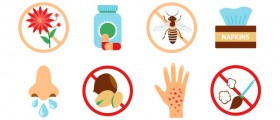
Medical alert bracelets are far from a simple accessory. There are situations in which they can save the life of the person wearing them. They are supposed to be worn all the time, around the wrist, and they contain vital medical information about the person wearing them. That way, in case there is an emergency, an accident or admission to the emergency room, doctors can look at them and obtain information that is required for proper treatment of the patient. They are particularly useful in situations when the patient is unconscious and cannot provide such information.
Importance of medical information
Since bracelets provide limited space, the medical information should be relevant. For example, there is no point in putting the information about a broken finger on the bracelet, since alerts about allergies, serious chronic conditions and such are much more important and can actually save a person’s life.
Medical alert bracelets also provide piece of mind to the person wearing them and to his or her family and friends. That way they can be sure that, in case there is an accident or an emergency situation, nothing can go wrong.
Who should wear medical alert bracelets?
These bracelets are particularly recommended for people who have allergies, who take long-term prescription medication, serious or chronic conditions or diseases or who simply want to assure proper identification in an emergency situation. They are also useful for children and for elderly people, especially those suffering from dementia.
When it comes to medical conditions, these bracelets are very helpful for people who suffer from epilepsy, asthma, diabetes or heart disease. People allergic to penicillin are also advised to wear them because if the doctors give them penicillin, unaware of the allergy, the risk of anaphylactic shock and potentially fatal outcome is very high.
Medical alert bracelets are also recommended for people who have implants, such as pacemakers, or have artificial hip or knee.
Organ donors and others
Sometimes people who are organ donors list that particular information on their medical alert bracelets. That way, in case they have a fatal accident, doctors will not have to wait for the next of kin to decide about the organ donation and it can actually save another person’s life.
Even if a person does not have any chronic conditions, does not take medications and does not suffer from allergies, he or she can put that information on the bracelet as well, which will help avoid unnecessary tests that are usually performed in an emergency room and save a lot of time.

















Your thoughts on this
Loading...